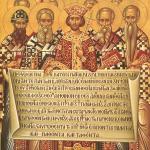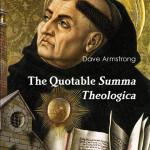If a culture no longer believes there is an objective, reasonable truth that can be discovered, then can it be asserted by the governing authorities that such things as fundamental human rights, freedom of religion, and the idea that persuasion is better than coercion exist? Does the absence of belief in an imprinted rationality upon the created allow for the development of a warped “theology” where a given will can come to command nearly anything?
The Greek etymology for “virtue” is “arete.” This term means something similar to our modern English concept of “excellence.” For Aristotle, virtue is a pleasurable pursuit tied to happiness. It is a trained habit that assists a good man to perform functions well. Humans are not only social and rational, but also moral, as we are able to formulate concepts such as just and unjust. Further, humans should be informed about virtue before a better community can be constructed – responsible, cooperative, and even courageous actions are not only desirable and superior to the alternative but necessary for succeeding generations. The education of virtue, its foundation in the well-ordered home, works for a desirable community where there are citizens of virtue and cooperation, and where elders actively convey a proven and honored code of ethics (honesty, restraint, hard work, and so on, that which is beneficial for the continued success of a community). In this way, the ties that bind the individual and the family to the larger community come to be understood, with responsibilities and rights firmly rooted in a shared and confident concept of what is good.
This good, in turn, can become a public good advantageous to all citizens: the person actively participating in civic life, being trustworthy and willing to reciprocate small, everyday private fortunes of goodwill is one who will flourish alongside the larger environment. I think that the tribal impulse is a powerful one through history, meaning that humans have not tended to bestow favor to others beyond their extended families. Civic virtue, however, can serve as a unifying moral underpinning of how a citizen relates to those in the immediate area as well as the larger society.
Yet given the mediocrity and vice that plague citizens, the clearly proven human capacity for great evil, and the difficulty of non-homogeneous populations in coming together not just to promote the common good but to simply have a discussion of the common good, what room for optimism remains among those who value civic virtue? How might those habits of personal living important for the sustained success of a community be cultivated? For Aristotle, citizenship consisted of political duties more than political rights. Citizens were to be taught to put individual interests aside in the service of their neighbors and the state, under the duties assigned and defined by the laws as determined by citizens who shared those values. He had a notion – to generalize greatly – of taking part in civic duties through shared community power, which may be thought of as something like our modern notion of deliberative political participation. Even so, it seems to me that a better (less utopian) view for the protection of virtue would be the “little platoons” and “mediating institutions” often associated with Edmund Burke.
The French Revolution, argued Burke, was dangerously full of abstract zeal for liberty and equality. The revolutionaries hastily tore down intermediate bodies and parochial loyalties that stood, and should stand, between the individual and the state. These “little platoons,” in his famous phrase, were attacked with high-minded and seemingly noble principles: no more feudal distinctions and no more special privilege for guilds and greedy churchmen. But the result was not a clean slate on which a new and equal society could be built, but instead the institutionalization of another privileged class. Further, the individual and the once-valuable mediating organizations were left more alone and defenseless than before, as an all-encompassing state – which in theory, belonged to the citizenry – was out of the reach of ordinary citizens. And abstract zeal for significant change so as to ‘protect’ what citizens cherish is certainly not a historical anomaly. Burke’s first constitutional principle is that a good constitution, a good political order, must organically grow out of the common experience of a people over a considerable period of time. It was not possible to create, from whole cloth, a quickly-improved constitutional order; an enduring and healthy constitution is the product of the struggles of the nation. It comes from learning the lessons of overreach and better understanding the boundaries of coercion, regardless of how seemingly noble and rhetorically persuasive the arguments for swift change.
It follows, I think, that social knowledge embodied in the common law and legal procedures must be anchored in family and individual morality. As the horrific carnage of the Twentieth Century has shown, governments do not very well impose a code of morals or ethics by fiat. Argument and clashing passions are ideally coordinated by convention, the wisdom of the past brought forward as a way of negotiation and compromise. This is the knowledge Burke wrote about in his denunciation of the French revolutionaries, who sought to bring about a form of heaven on earth with a priori thoughts and methods. And in fact the common law tends to contain within it information that cannot be brought effectively by constitutional guidance and legislative action: how conflicts in a given community arise and might be resolved, what justice could be defined as in a particular dispute, and the definitions of rational expectation for legal recourse. An open-ended, flexible response of law, in other words, is not effective when legislation or constitution remain the sole authorities. Further, those attempts to remake the legal order from the ground up, with little concern for culture and history, are a disservice to the very idea of community because the new code irrationally casts aside accumulated knowledge and prejudice (in its positive, and proper, meaning).
















